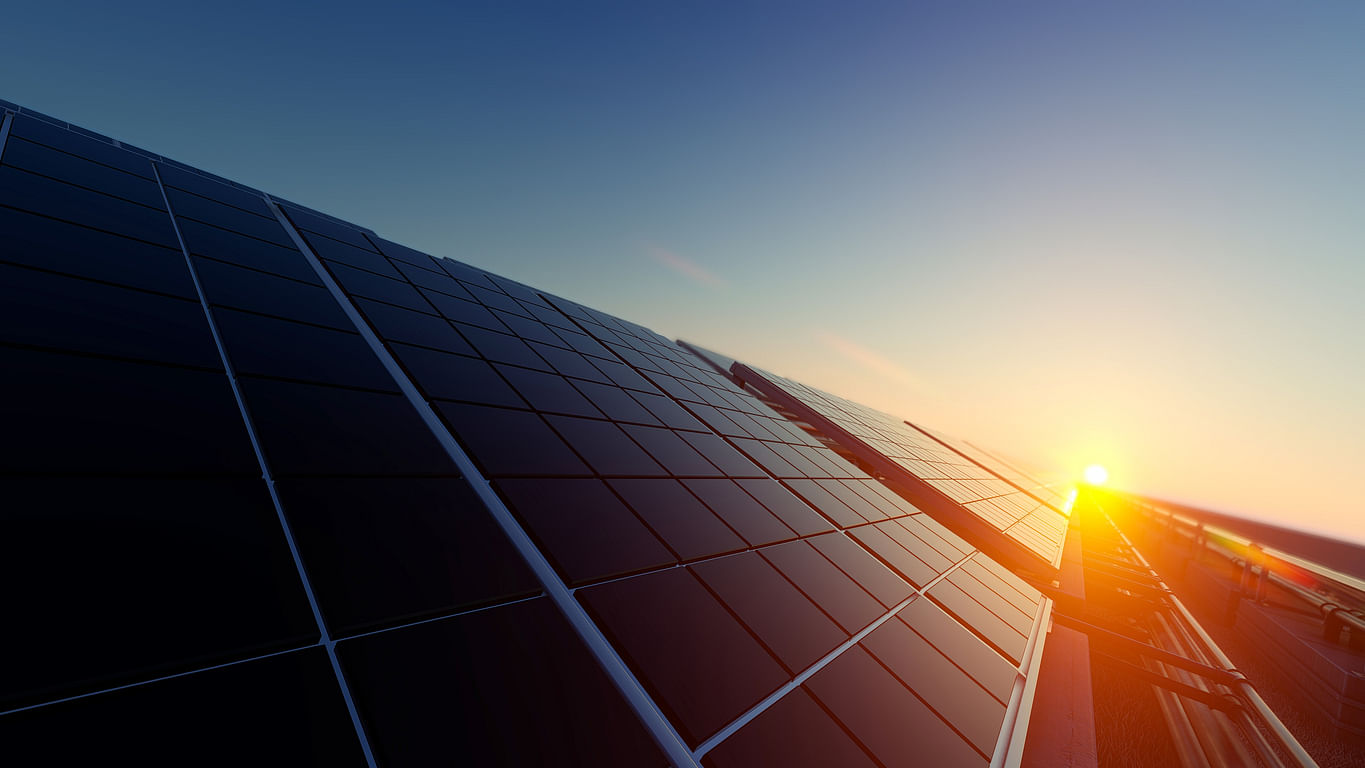
An image showing solar panels.
Credit: iStock Photo
Lake activists and ecologists are sceptical about the government’s decision to instal floating solar panels on 40 lakes across Karnataka. The move was announced last week by Minor Irrigation Minister N S Boseraju. The minister is likely to meet with a team of experts in early August to discuss its feasibility.
How is it going to benefit the lake?, asks N H Subramanian, a lake activist who serves as the secretary of the Benniganahalli Kere Trust. Though Benniganahalli Kere is not one of the lakes identified for the project, he points out that the panels could prove to be an eyesore. “There are far more urgent requirements for Bengaluru’s lakes,” he observes.
Over 100 acres
Of the 40 lakes, four are in Bengaluru. They include Bagalur lake (Yelahanka), Singanayakanahalli lake (Yelahanka), Jigani Doddakere (Anekal) and Muttanallur Amanikere (Anekal). “The lakes have been chosen based on the area they cover. Most of them cover an average area of least 100 acres,” Boseraju shared. The project will help reduce the cost of electricity spent monthly on the lift irrigation system. The government currently spends Rs 10-11 crore monthly, he revealed.
Last green spaces
One must first look at the purpose of the lakes, states Veena Srinivasan executive director of Water, Environment, Land and Livelihoods (WELL) Labs. “Is it for fishing, or flood control, or storage? As far as I know, most lakes serve a recreational purpose. These are the last remaining green spaces in the city. In that case, why spoil the beauty of the lake? It could also interfere with their ecological function as they will cut off sunlight,” she says.
She believes it makes more sense to instal these panels on irrigation canals because they have no ecological value and at the same time the panels will slow down evaporation.
“This is uncharted territory. Shouldn’t we be doing this on one lake to see its effect on ecology and then take a decision on whether it can be extended to other lakes? Why are we doing this on 40 lakes at one go,” asks Harini Nagendra, ecologist and author.
A source from the minor irrigation department explained that the plan is to use smaller panels across a small section of each lake. “It will not cover the entire surface of the lake,” he clarified, adding, “Nothing is final yet. Currently we are just exploring the possibilities. We will definitely take ecological concerns into consideration.”